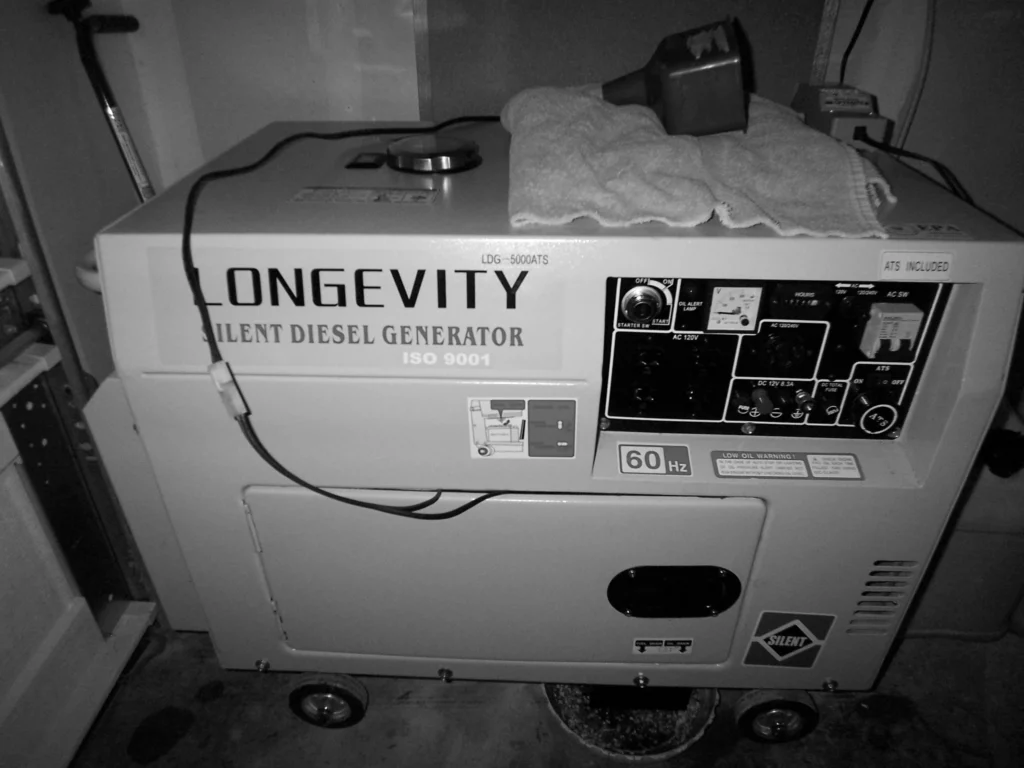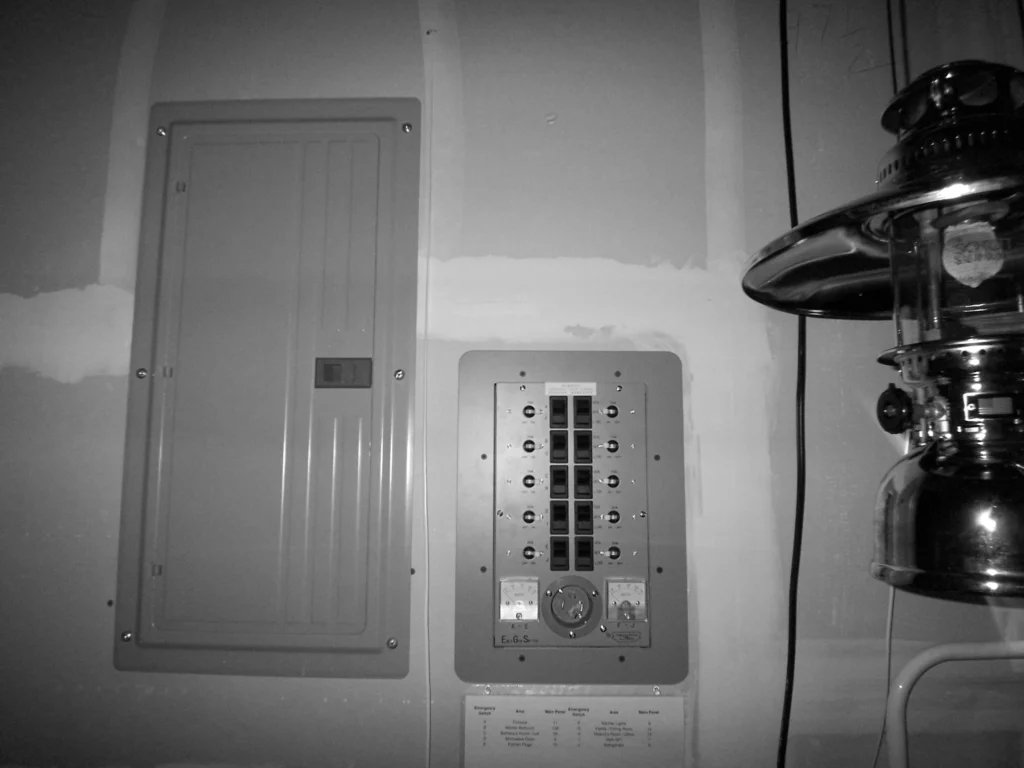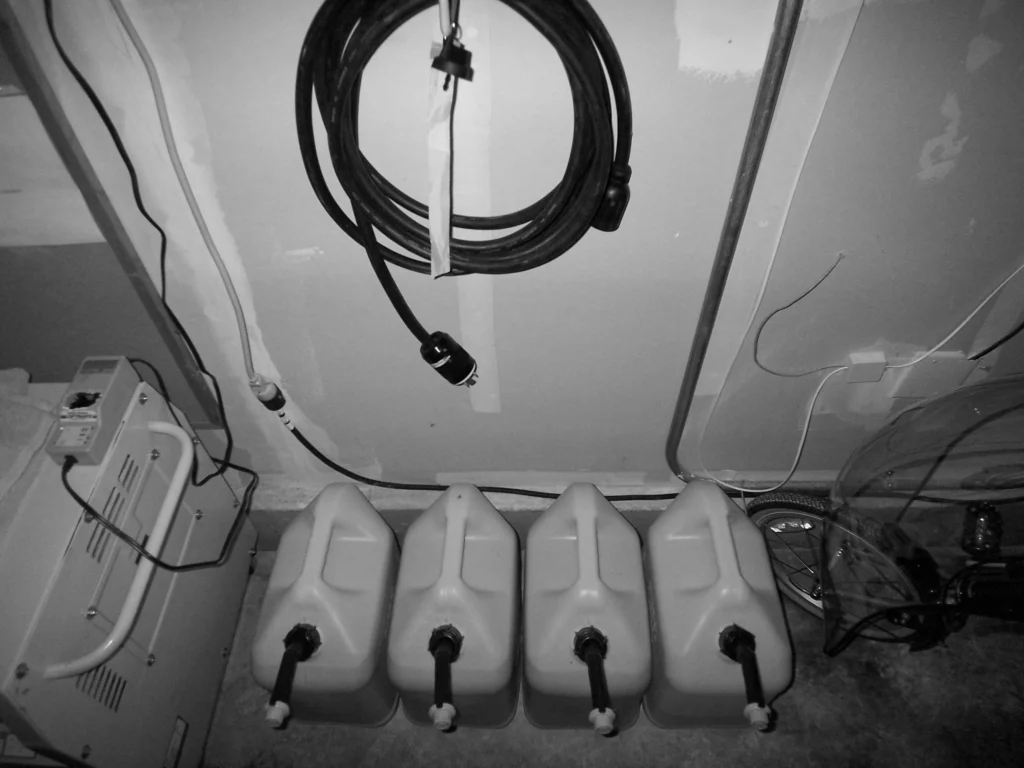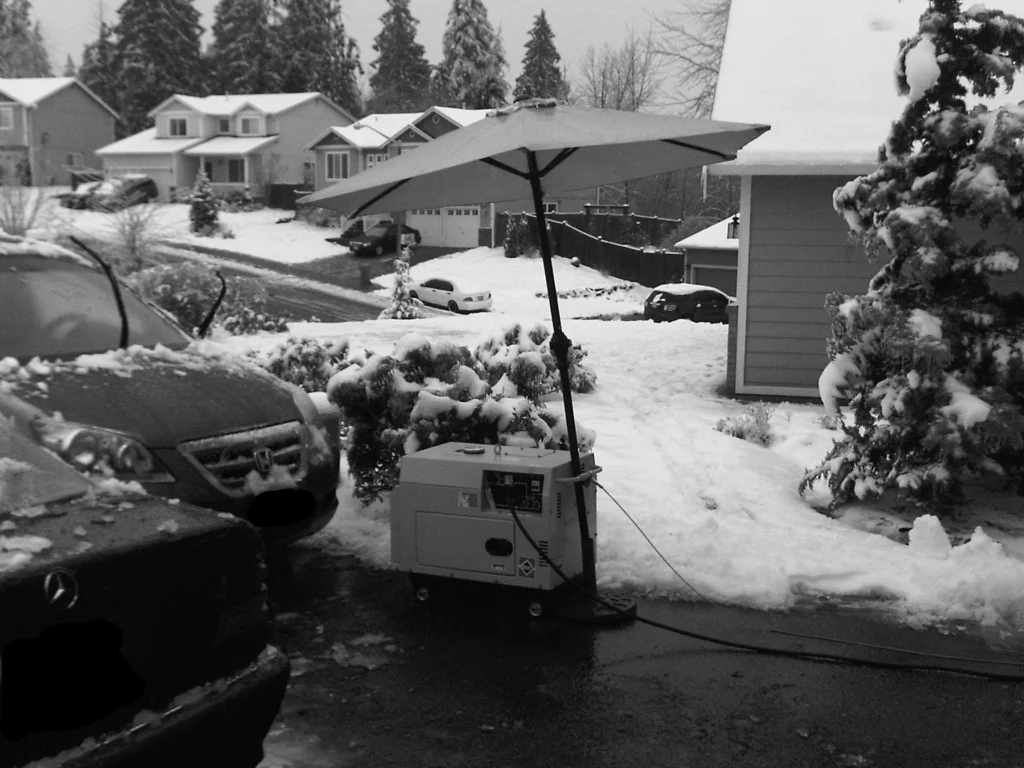



Why Diesel?
Several factors highlight why diesel generators are often considered superior when comparing diesel generators to gasoline generators, particularly for emergency power applications.
1. Fuel Efficiency
Diesel generators are more fuel-efficient than gasoline generators. Diesel engines operate using compression ignition, which burns fuel much more efficiently. This efficiency translates to longer running times on the same amount of fuel compared to gasoline generators. This is particularly advantageous during emergencies when fuel supply might be limited.
2. Durability and Reliability
Diesel generators are known for their durability and reliability. They have a more straightforward design with fewer parts that can break down, such as spark plugs or carburettors, which are common in gasoline engines. This robustness helps reduce maintenance needs and increases the generator’s lifespan, making diesel generators a dependable choice for critical situations.
3. Longevity
Diesel engines, by design, are built to withstand rigorous use and can operate for significantly more extended periods under continuous or near-continuous loads. This is beneficial during extended power outages where continuous power supply is crucial.
4. Safety
Diesel fuel is less flammable and explosive than gasoline, making diesel generators safer. In emergencies, where safety is paramount, diesel generators are a better choice as they pose a lower risk of accidents.
5. Cost-Effectiveness
Although diesel generators typically have a higher initial cost than gasoline generators, they are more cost-effective in the long run. Their fuel efficiency, lower maintenance costs, and longer lifespan contribute to a lower total cost of ownership. This cost-effectiveness is vital in emergency power situations, where the generator may need to operate for long durations.
6. Power Output
Diesel generators generally provide a higher power output, which makes them suitable for powering more extensive facilities or critical systems during an emergency. This capability to handle higher loads ensures that essential services can continue without interruption.
7. Operational in Various Conditions
Diesel generators perform better in cold weather conditions compared to gasoline generators. Diesel fuel has a higher energy density and does not evaporate as quickly as gasoline. This quality ensures that diesel generators start more reliably in adverse weather conditions, providing a significant advantage in emergencies.
Conclusion
Considering these points, diesel generators offer substantial benefits over gasoline generators for emergency power needs. Their efficiency, durability, safety, and operational superiority in various conditions make them excellent for ensuring uninterrupted power during critical times.
YouTube Video of the Diesel Generator
Operational Use
| Do not exceed a total combined wattage of 5000 watts | |||||
| Emergency Switch | Area | Main Panel | Emergency Switch | Area | Main Panel |
| A | Furnace | 11 | F | Kitchen Lights | 9 |
| B | Master Bedroom | 13A | G | Family / Dining Room | 14 |
| C | Bedroom Room / Loft | 20 | H | Bedroom Room / Office | 15 |
| D | Microwave Oven | 6 | I | Bath GFI | 7 |
| E | Kitchen Plugs | 10 | J | Refrigerator | 8 |
| 2500 watt maximum | 2500 watt maximum | ||||
| Energy Management | |||||
| Use | Area | Typical Wattage | Use | Area | Typical Wattage |
| Dedicated | Furnace | 800 w | Kitchen Lights | 45 w | |
| Master Bedroom | Family / Dining Room | ||||
| Bedroom Room / Loft | Bedroom Room / Office | ||||
| Intermittent | Microwave Oven | 1200 w | Intermittent | Bath GFI (Hair Dryer) | 1500 w |
| Rare | Kitchen Plugs | 500-1000 w | Dedicated | Refrigerator | 800 w |
| Optimal load: add load devices to prevent the generator from wet stacking | |||||
| Remove the load before using other high-wattage devices! | |||||
| E | Space heater | 1000 w | J | Space heater | 1000 w |
| Use this guide for energy management decisions. Watt Meter: Each Notch is equal to 150 watts  | |||||
Generator Startup
- Disconnect the battery charger from the generator.
- Remove the key from the wall hook.
- Open the garage door.
- Check the generator fuel and oil levels.
- Remove the electrical cable from the drawer and place it on the generator.
- Roll the generator onto the driveway.
- Make sure the breaker on the generator is off.
- Turn the fuel lever to the on position.
- Start the generator.
- Connect the electrical cable to the generator.
- Connect the other end of the electrical cable to the panel in the garage.
- Switch the generator power switch to 240 volts.
- Once the generator has had at least three minutes to warm up, turn on the generator’s electrical breaker.
- Verify that the power meter on the generator shows 240 volts.
- In the garage, switch circuits to the generator one at a time.
- Verify that the watt meters on the panel do not exceed 2500 watts.
- Close the garage door.
- In the house, place the battery in the carbon monoxide detector.
- Plug in the carbon monoxide detector in a frequently used area inside the house.
Generator Shut down
- Open the garage door.
- Switch the load back to the line on the panel.
- Turn off the generator’s electrical breaker and allow the generator to run without a load.
- Verify that the power meter on the generator shows zero volts.
- Disconnect the electrical cable from the generator.
- Place the electrical cable back in the drawer.
- Verify that the breaker on the generator is off.
- Once the generator has had at least three minutes to cool down, stop the generator.
- Roll the generator into the garage.
- Remove the key from the generator and place it on the wall hook.
- Check the generator fuel and oil levels.
- Turn the fuel lever to the off position.
- Connect the battery charger to the generator.
- Close the garage door.
- Unplug the carbon monoxide detector.
- In the house, remove the battery from the carbon monoxide detector after unplugging it.
Low Fuel Situation (less than 10 litres of fuel remaining)
- Transfer all frozen food from the Freezer in the house to the garage freezer.
- Rotate Blue Ice blocks upward from the bottom of the garage freezer to the top of the food.
- If it is cold outside, run the heater at maximum temperature.
- Close all drapes and blinds.
- Seal any cold air leaks (tape window and door seams).
- Charge all batteries.
- After 12 hours without power (after running out of diesel).
- If it is cold outside, freeze water in buckets and use it in the freezer to keep food cold.
- Eat the food that can spoil first (before spoilage happens).
